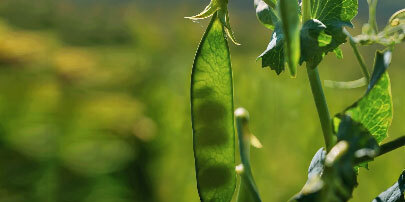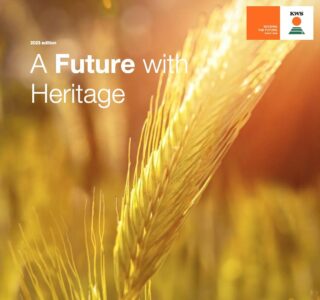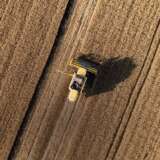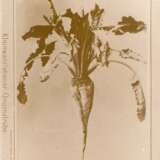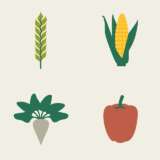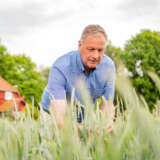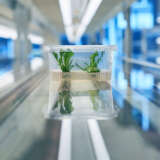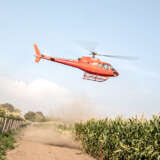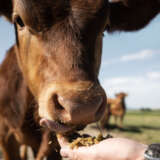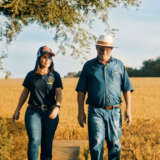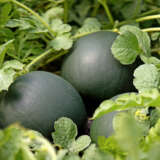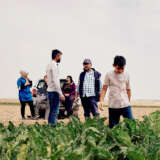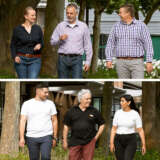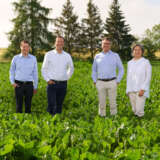Our solutions for the future!
Examples of tomorrow’s agriculture
The battle against climate change, the desire for healthy food and the quest to make our lives more efficient through digitized processes: Based on these key trends, KWS has defined a clear strategy. The objective: to translate the requirements of sustainable and economical agriculture into innovative products and services and to provide high-quality seeds for future value creation.
Sustainability for the climate and agriculture:
Learning from pests.
Fungi, nematodes and bacteria are among the pests that cause plant diseases. KWS breeds some of these pathogens and pest insects so that, in the future, we can develop varieties that deliver high yields despite a reduced use of chemical pesticides. Sugarbeet is one example of the importance of collaboration between classic KWS breeding programs and phytopathology — the scientific study of diseases in plants and how to combat them: Since neonicotinoids have been banned in seed dressings in the EU, sugarbeet increasingly has to combat certain animal pests on its own. These include yellowing virus, a disease transmitted by aphids. KWS breeds this “enemy” of the sugarbeet and uses it specifically to infect plants in the greenhouse or in the field for experimental and research purposes. This provides new insights and enables us to develop more robust varieties.
Creating digital added value:
A disease radar for infection risks.
Leaf rust, mildew and ramularia leaf spot: Diseases and pests can reduce yields and, as a result, lead to economic disadvantages. Weather conditions have a direct impact on the (potential) development of an infection and, consequently, provide an important basis for calculating the probability of infection. Using weather-based forecasts and simulation models, the myKWS Disease Radar system (powered by ISIP) allows farmers to estimate the risks of infection, make specific calculations and assess the situation. The most important leaf diseases in cereals (winter wheat, winter barley, winter rye and spring barley) are integrated.
Fulfilling customer requirements:
Expertise across all channels.
Digital interactions are increasingly a part of the everyday work of farmers — up to 91 percent of European farmers now prefer to obtain information about agricultural supplies and product offers via digital channels1. However, contact and personal relationships between farmers and advisers remain an important trust-building pillar when it comes to buying decisions. In particular, farmers regard seed as a product that is more difficult to choose online than, for example, fertilizers or pesticides. KWS’s high level of trustworthiness and digital expertise make it the ideal partner — analog, personal and for online seed sales. This is ensured by several hundred colleagues in the sales department, live online advice via messenger services like WhatsApp or in live chats, more than 30 myKWS services and seed web shops in eight countries so far.
¹ McKinsey (2020). Unlocking the online retail opportunity with European farmers.
Protein-based food:
Getting the taste right.
Food requirements are increasing and the market for plant-based products is growing. This opens up new business areas: In collaboration with partners in the food industry, KWS is delving deeper into the genetics of protein plants and their functional properties in order to develop breeding solutions. One example is the development partnership with Berlin-based startup VF Nutrition GmbH — better known under the vly brand. The company develops and markets milk substitute products based on pea protein. The aim of the cooperation is to define the ideal combination of genetics and processing of the peas, for example, with regard to taste, processing qualities and texture.
